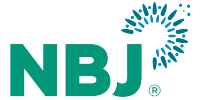
The U.S. economy may be heading for a recession: a slowdown of economic activity that is part of the natural business cycle. To see what this might mean for the health and nutrition industry, we can learn from the Great Recession of 2008–09.
Inflationary pressures lead to recession
Three decades of globalization allowed consumers around the world to enjoy lower prices on goods produced wherever they could be made at the least expense. The reversal of globalization, into the regional and national production now underway, will result in underlying inflationary pressure that will be with us for decades into the future. In the U.S., inflation has been amplified by years of increasing borrowing. A wage-price spiral, where prices go up so workers ask for more pay, giving them more spending power to drive up prices, can accelerate inflationary pressures further. Chronic inflation must be tamed by governments who want their currencies to retain value. Their best tool is to raise the costs of borrowing to slow economic activity, all too often driving it into recession.
Recession and resilience
The last major economic recession, from late 2007 to mid-2009, saw economic contraction of 4.3%, as measured by real gross domestic product, and was so severe it was labeled the Great Recession. Millions of people lost their homes and jobs, and the U.S. S&P 500 stocks lost 57% of their value at the lowest point, erasing $16 trillion in American’s net worth. What a mess.
Against this bleak economic backdrop, there was some good news: the U.S. nutrition (VMS) industry proved itself remarkably resilient. At the depths of the Great Recession, consumer demand for VMS products grew 6.4% in 2008 and 6.1% in 2009. At the time, we reasoned that, in leaner economic times, people prioritized taking better care of their health simply because they couldn’t afford to get sick. We also saw this consumer behavior in the more recent COVID-19 lockdowns, albeit with higher personal stakes.
A deeper dive into NBJ category data by channel reveals growth in every single sales segment across the entire VMS industry, with the exception of MLM, in 2008 and 2009, with e-commerce growing at 25% in 2008. This remarkable resilience held up in spite of a -1.8% contraction in overall consumer spending in 2009.
Great deals in the Great Recession
The environment for investment generally follows the ebbs and flows of the overall economy, with earlier-stage companies that are not yet profitable far more vulnerable to downward swings in valuation when the economy contracts. According to the Nutrition Capital Network transaction database, there was a sharp downswing as total deal activity for supplement companies dropped roughly in half during the Great Recession, with 2008–09 logging only 18 completed deals as compared to 34 completed deals in the prior two-year period 2006–07. A strong rebound followed, with supplement deal activity back to 34 completed deals in the 2010–2011 period.
Down times can mean bargains for smart investors. In 2008, NBTY bought Leiner Health for $371 million, setting up NTBY’s $4.0 billion sale to Carlyle Group just a few years later, in 2010, and laying the foundations for becoming one the major players in the nutrition industry today. My former company, Garden of Life, was bought by Atrium Innovations in 2009 for $35 million, setting the stage for Nestlé Health Sciences’ 2017 acquisition of Atrium for $2.3 billion. The Garden of Life and Leiner Health deals, both executed during the Great Recession, show that stellar investments can be made in difficult economic circumstances.
The Great Recession was also a great time to invest in venture stage companies. If you had come to a Nutrition Capital Network event in 2008–09, you would have had the chance to become one of the first investors in Celsius (which I co-founded, now a public company with a $10 billion-plus valuation), Annie’s Organics (acquired by General Mills for $820 million in 2014), Food Should Taste Good (acquired by General Mills in 2012), Zevia (which attracted a $200 million minority investment from CDQP in 2020 and is now a $100 million beverage brand), Happy Baby (acquired by Danone in 2013), Plum Organics (acquired by Campbell’s for $93 million in 2013) and ZICO (acquired by Coca-Cola 2013). Even for venture stage investors, there were great deals made during the Great Recession.
Resilience, Act II
Are down times actually good for the nutrition industry? Certainly not all good. Consumers still view nutrition and supplements as an expensive part of their overall food budget and will trade down or cut purchases when disposable income declines.
In more recent times, the nutrition industry has shown remarkable resiliency—supplement sales now in 2023 are 2.5 times larger than they were at the beginning of the Great Recession in 2008.
The health and nutrition industry has changed for the better in many ways since 2008, making it even more resilient. The pandemic taught consumers the value of protecting their health with supplements. Distribution of specialized nutrition products is almost ubiquitous now, no longer requiring a special trip to GNC or Vitamin Shoppe. Nutrition science has continued to expand our knowledge about how specific bioactives can have a positive impact on health, improving the underlying effectiveness of products and helping people understand and experience the benefits. Social medias and other electronic communications have made it easier than ever to tell the story of effective nutrition products, just as wearables have made getting data to find out what works for you as easy as strapping on a watch.
Recessions are a natural part of the business cycle, and another one is coming sooner or later. Important lessons from the Great Recession include not betting against the VMS industry, staying on the lookout for investment opportunities that get created in more challenging economic times and staying confident in the long-term outlook of the highly resilient health and nutrition category.

About the Author(s)
You May Also Like





